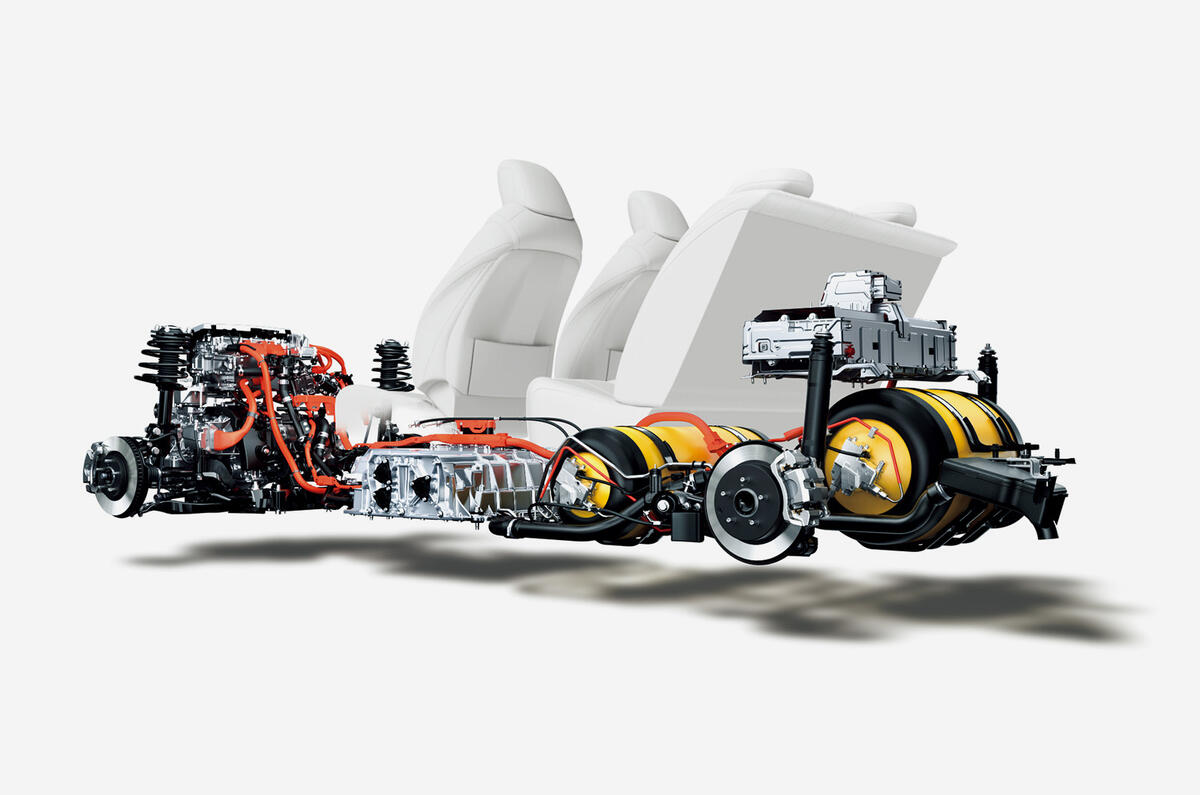The government is putting £2 million towards the furtherment of hydrogen fuel cell vehicles and plans to triple the number of FCVs on UK roads to 100 by next spring.
The £2 million pledged, which is offered to businesses interested in adopting FCVs, will cover 75% of the cost of new vehicles, in addition to the vehicles’ running costs over three years. These businesses include local authorities, police forces and fire brigades, as well as private sector companies.
Currently, the only two available FCVs on the UK market are the Hyundai ix35 Fuel Cell and Toyota Mirai, although both companies plan to bring more vehicles of their type to market in the future. The ix35 Fuel Cell costs £53,105 to buy, while the Mirai has a price tag of £66,000.
In 2014, the government earmarked £5 million for 12 hydrogen refuelling stations, two of which have now opened. The rest are scheduled to open before the end of the year.
In spite of the investment in FCVs and their infrastructure, industry experts explain that the national hydrogen refuelling infrastructure is still too weak to support a mainstream hydrogen fuel cell vehicle, and public awareness still needs to be raised concerning FCVs.
Riversimple, builder of the Rasa hydrogen fuel cell vehicle, base its beta testing and sales plan around the location of hydrogen refuelling stations, rather than the blanket approach used by petrol-powered car manufacturers.
Speaking to Autocar recently, Diana Raine, European business manager of hydrogen energy for distributor Air Products, said: “Ultimately, the strength of the framework is what will drive the adoption of these technologies.
“Hydrogen is definitely on the [government’s] agenda; it’s better understood and people understand the environmental benefits of hydrogen cars better than they ever have, but certainly more could be done.”
Raine did, however, acknowledge that ensuring refuelling stations will be used is key to their development. “We need people using the station to justify the station itself, so we need to be nurturing vehicle deployment simultaneously.” she said.






Join the debate
Add your comment
Exciting
Stupid
Or more sensibly, they could spend the same money on 67 rapid chargers, or 600-4000 destination chargers, as EVs are currently better than FCVs in every way except charging speed and range, and even those won't be the case for long.
worse than you think
It's actually a lot more than twice but the hydrogen pro boys don't want that known. pssss it takes around 40kwh to produce one kilo of hydrogen that does around 55 miles, a Leaf can do 200 miles on that amount of KW'ge. It goes some way to explaining why the car press are never allowed to tell you equivalent mpg figure at the time of testing an Hydrogen car.
not what you think
Having looked into the range claims of the Nissan Leaf, I'm assuming you mean that because the 30 kwh battery can achieve 155 miles, 40kwh of electricity should be good for 206.67?
You do get that it's quoting the energy stored in the battery, not the amount of energy it took to charge it?
The charging process isn't 100% efficient, energy is lost.
TBF to Nissan it's a very impressive 60-90% efficiency (https://avt.inl.gov/sites/default/files/pdf/fsev/SteadyStateLoadCharacterization2015Leaf.pdf).
If you split the difference and factor in 75% efficiency then you're looking at 155 miles on 40kwh.
It's obviously still better (2.8x) but when you consider the amount of money that has been invested in battery R&D over the years (mostly from other applications) they're much further ahead in terms of advances than fuel cells are.
A large scale roll out of hydrogen cars would increase the R&D spend and therefore result in some advances.
Furthermore 2.8 isn't "a lot more than twice". I'd describe it as "a bit more than twice"
Laughable